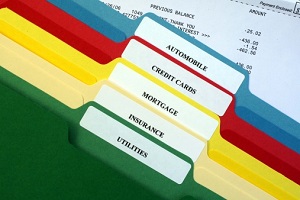Making the final decision to file bankruptcy can be challenging, but my clients report feeling immensely relieved. Simply settling on this decision provides relief because you have a plan to move forward and out of your financial darkness. Technically, nothing official happens until you file your petition. However, your peace of mind will lighten your load and allow you to think and see your future clearly.
There will be a period of time between the point you decide to file bankruptcy and the moment your petition is filed in the court. There is paperwork to complete, information and data gathering and your attorney may advise a future filing date. This in between period can cause some confusion in regards to how you should deal with your creditors. You should discuss creditor payment with your bankruptcy attorney because each financial situation is unique and will require unique actions.
Knowing When to Stop Paying Creditors
 Your creditors won’t know you are filing bankruptcy until your petition is filed, so during this period they still expect to be paid. Depending on your specific financial situation, you may or may not be making payments to your creditors when you decide to file bankruptcy. You need to determine with your bankruptcy attorney how to best allocate the money you do have, and how to deal with the creditors you aren’t going to pay.
Your creditors won’t know you are filing bankruptcy until your petition is filed, so during this period they still expect to be paid. Depending on your specific financial situation, you may or may not be making payments to your creditors when you decide to file bankruptcy. You need to determine with your bankruptcy attorney how to best allocate the money you do have, and how to deal with the creditors you aren’t going to pay.
Your specific situation – including your types of debt, when you are going to submit your petition and what chapter you are filing – will affect how you proceed. Here are some general practices your attorney may advise, based on your circumstances:
Pay Your Secured Creditors
Secured credit is that which is backed by a piece of property; common secured debts include mortgage and car loans. A general rule of thumb with secured credit is: if you wish to keep your property, you need to keep making payments to your creditors.
If, before you file a bankruptcy petition, you stop making payments, your creditors have the right to seize your property. If your creditors begin the legal proceedings to seize your property before your petition is filed, your bankruptcy filing may be able to stop that process.
Stop Paying Unsecured Creditors
Unsecured creditors loan you money based on your promise to pay. Credit cards and medical bills are the two most common types of unsecured and dischargeable debts; they are also two of the most common reasons individuals fall into financial trouble. These are the types of debts you should stop making payments toward if you plan to file in a short period of time, because they will likely be discharged in your Chapter 7 bankruptcy or rolled into your repayment plan in a Chapter 13.
After missing payments for a certain period of time, your creditors can take legal action by filing a debt collection lawsuit against you. Discuss your timeline for filing bankruptcy with your attorney and ask about making payments to your unsecured creditors.
Other Monthly Obligations
Most people I help through bankruptcy have additional monthly bills including basic living expenses, alimony and child support commitments or student loans. For your basic living expenses – cable, internet, electricity, water, utilities, etc. – you should follow the secured debt general rule of thumb. If you wish to keep their services, keep making payments.
Alimony and child support commitments as well as student loans are non-dischargeable debts. This means you will retain your liability to pay off these debts and they will not be considered in your bankruptcy petition. Therefore, you are legally required to continue making timely payments on these debts.
Again, I cannot stress enough, that each situation is unique. Although I can provide general practices, I cannot determine what your specific circumstances require. Please, talk with your bankruptcy attorney or request a free, no-obligation consultation with me to discuss your unique financial situation.
Sources:
http://www.alllaw.com/articles/nolo/bankruptcy/stop-paying-creditors-file-bankruptcy.html



